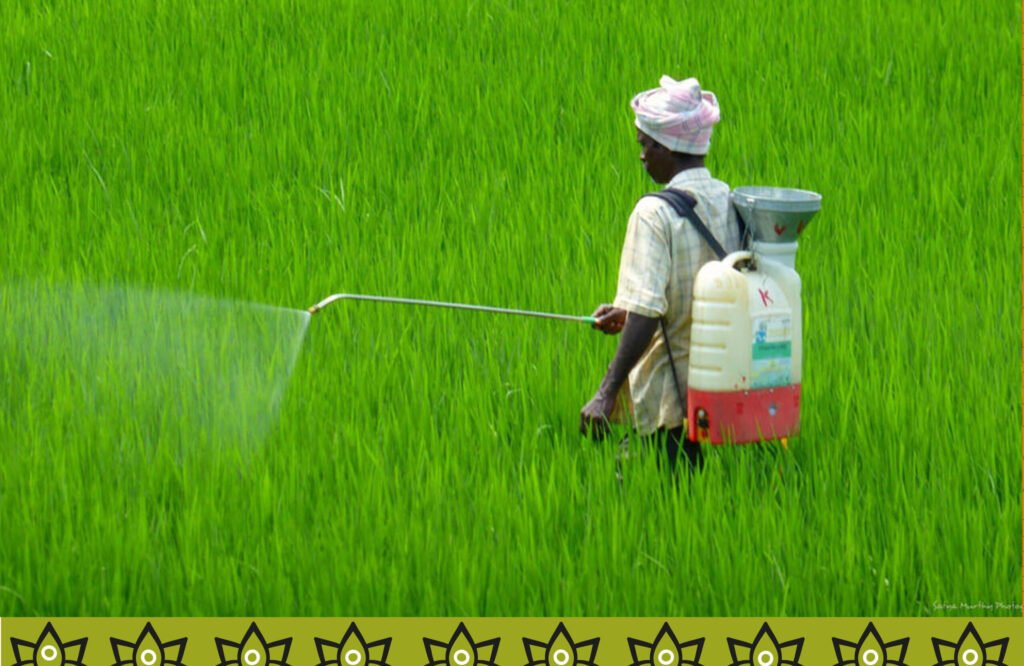KAMPALA-SHIFTMEDIA- NCDs are rising at a terrific rate in Uganda; according to the WHO, poor-quality diets are now the leading cause of disease worldwide. In Uganda, NCDs are estimated to account for 33% of all deaths.
According to the Uganda Parliamentary Forum on NCDs, the number of Ugandans living with NCDs is increasing dramatically and the probability of one dying between the ages of 30-70 years from the 4 main NCDs is 21%. The prevalence of NCDs is associated with unhealthy diets traced from the food system where the use of agrochemicals is increasing at an alarming rate.
According to FAO, Uganda’s pesticide import value from 1990-2010 increased from $5 million to $30–35 million. The toxicity of these products and the failure to adhere to handling instructions continue to pose grave environmental and health risks to Ugandans. According to the UNACOH study of 2019, the Ugandan food market is highly contaminated with agrochemical residues. Up to 94% of them had one detectable concentration of pesticide residue.
It is reported that up to eight pesticide residues were found in tomatoes sold in major markets of Uganda, the vendors in the sampled markets prefer to sell tomatoes containing visible pesticide residues to consumers saying chemicals especially Mancozeb increase the shelf life of the tomatoes, yet many farmers spray their crops even on the selling day to make their crops attractive.
Scientists at MAAIF warn that unless regulated immediately, the problem of misuse of agro-chemicals is a ticking time bomb for the country.
The Ministry of Health has guided on healthy diets as those low in sugar, fat and salt content. Communities are encouraged therefore to eat enough safe fruits, vegetables, water, whole food, avoid highly processed foods and sugar-sweetened beverages. However, to achieve this, there is a need for a supporting food system. Healthy diets and sustainable food systems are interlinked. Food production systems must be in tandem with the desired healthy diets with an unbroken food chain.
Sustainable production involves the management and use of natural resources, biodiversity, and ecosystems, while at the same time improving the economic, social and livelihoods of farmers. For this to happen, duty bearers and rights holders must adhere to a well designed and implemented legal framework.
The agro-dealers are not supervised right from the wholesale importers to the small agro-shop attendants in the rural areas. This has led to fraud and cheating of farmers in terms of fake inputs and dangerous chemicals which farmers apply with no knowledge of their potential carcinogenicity to them and consumers.
The Annual Agricultural Survey 2018 indicates that about 21% of agricultural households used agrochemicals and the same is increasing at 17%. With an increase in agrochemical use, there is an increase in chemical residues in food which affects food safety.
Law enforcement for food safety standards must be placed at all the food supply chains because it plays a crucial role in human health, resilience, economic and environmental sustainability of food systems. There is need to adopt the right to adequate food to keep in check all decisions and practices made by all actors at any stage in the food system and having implications on the availability, affordability, accessibility, acceptability, and safety of nutritious food for healthy diets.
The government should therefore effectively implement the Plant Health Act, operationalize and implement the Agriculture (chemicals) Act especially should pass regulation on chemical use and cause robust awareness in communities. The government should also strengthen environmental law enforcement including climate adaptation and mitigation measures around the food supply chain through promoting sustainable agriculture to achieve sustainable food systems that enhance food security and nutrition.
There’s also need for agricultural investment, and support food producers in the adoption of sustainable production practices and the production of diverse food that contributes to healthy diets, while ensuring a decent income, livelihoods, and resilience for smallholder farmers.
Lastly, the government should engage and empower women and youth, in getting involved in the food systems by enhancing their access to resources, inputs, extension services, training, markets, and promoting their inclusion in decision-making processes following national legislations, policies and regulations using the human rights PANTHER principles.
BY: JONATHAN LUBEGA-




